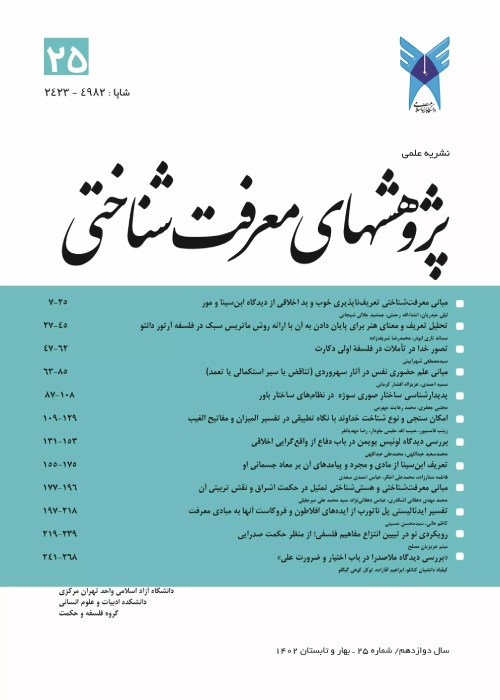Position and function of reflective judgment in Kan's hilosophy
Author(s):
Abstract:
Kant differentiates between reflective and constitutive judgment explaining them in two teleological and aesthetic spheres. The judgment, in general, is a faculty which considers particular objects beneath universal law. If the niversal law has been given as priori, the judgment will be constitutive. If particulars are given and its universal law must be found, the judgment will be reflective. He tries to explain that as the faculty of understanding has its own priori principles, he also endeavors to figure out the priori principles for the judgment. The priori principle of reflective judgment is the intrinsic purpose of the nature.
Keywords:
Language:
Persian
Published:
Journal of Epistemological Research, Volume:4 Issue: 2, 2016
Page:
33
magiran.com/p1603605
دانلود و مطالعه متن این مقاله با یکی از روشهای زیر امکان پذیر است:
اشتراک شخصی
با عضویت و پرداخت آنلاین حق اشتراک یکساله به مبلغ 1,390,000ريال میتوانید 70 عنوان مطلب دانلود کنید!
اشتراک سازمانی
به کتابخانه دانشگاه یا محل کار خود پیشنهاد کنید تا اشتراک سازمانی این پایگاه را برای دسترسی نامحدود همه کاربران به متن مطالب تهیه نمایند!
توجه!
- حق عضویت دریافتی صرف حمایت از نشریات عضو و نگهداری، تکمیل و توسعه مگیران میشود.
- پرداخت حق اشتراک و دانلود مقالات اجازه بازنشر آن در سایر رسانههای چاپی و دیجیتال را به کاربر نمیدهد.
In order to view content subscription is required
Personal subscription
Subscribe magiran.com for 70 € euros via PayPal and download 70 articles during a year.
Organization subscription
Please contact us to subscribe your university or library for unlimited access!



